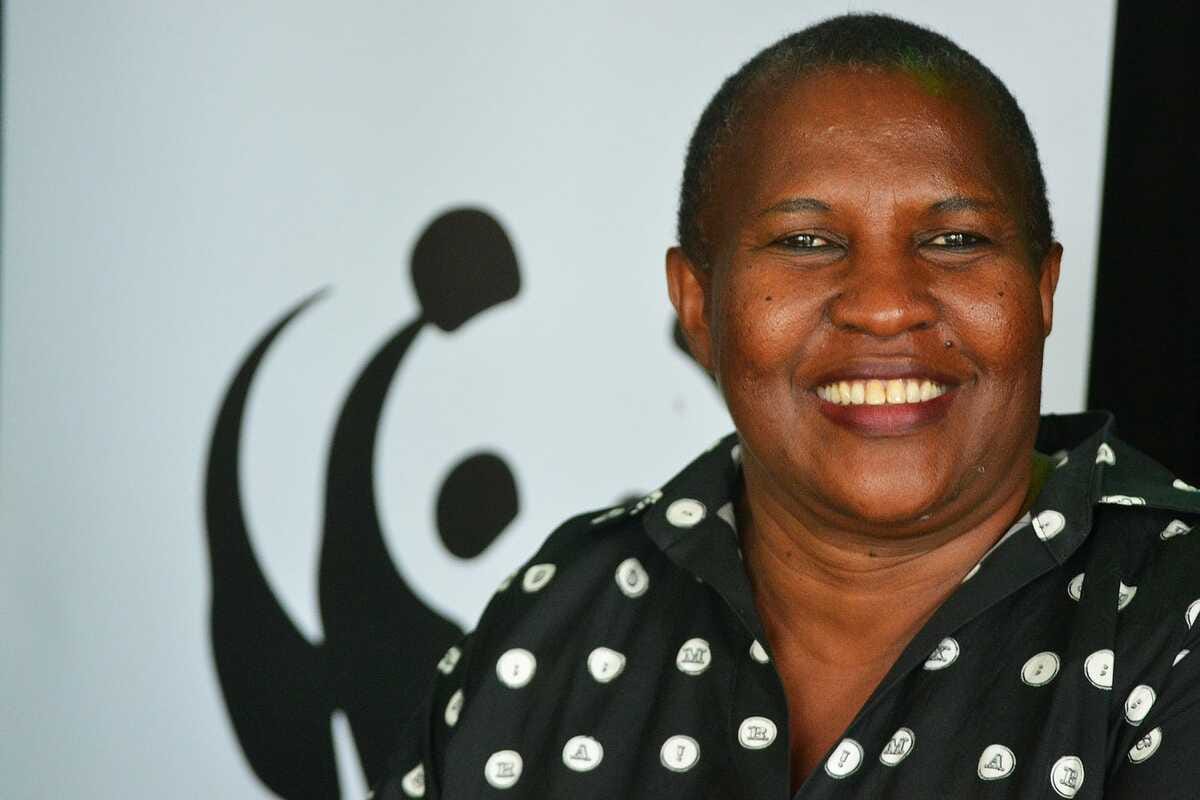
By Alice Ruhweza, WWF Africa Regional Director
This is the decade for debunking myths about conservation in Africa. Not only are these myths pervasive, persistent, and pernicious. They are perpetuated by those who put short-term gains for the few ahead of long-term gains for the many. To decisively tackle climate change and reverse biodiversity loss, we must not be misled by myths but face the facts.
The most common myths paint a picture of a world where conservation is at odds with Africa’s economic and social development. Nothing could be further from the truth. Far from being at odds with Africa’s aspirations, conservation is critical to underpinning them, from zero poverty and hunger to creating pathways to sustainable prosperity for all.
On July 21, WWF is launching its Africa Strategy 2021-2025 at the International Union for Conservation of Nature (IUCN) Africa Protected Areas Congress (APAC) in Kigali, Rwanda. We do so in the knowledge that correcting these myths is crucial to conservation at scale across the continent.
Our strategy debunks two big myths.
The first myth is that conservation and economic development cannot co-exist. Nothing could be further from the truth. Far from being mutually exclusive, they are inextricably linked.
Our strategy focuses on Making Nature Count.
Nature is Africa's bedrock of economic, social, and environmental sustainability. Yet, it is increasingly threatened by extraction, fragmentation and unsustainable production and consumption. Valuing nature’s contribution is critical to Africa’s development.
The facts speak for themselves. Up to 50% of the wealth in most African countries comes from natural capital and assets. Around 70% of Africa’s population depends on nature for their livelihoods. We need to value our assets and make them count for all.
The second myth is that conservation is only for the elite few. Our strategy has two impact areas aimed at addressing these myths. One calls for the creation of Shared Spaces that ensure co-existence between nature and people’s needs. The other calls for engaging the Whole of Society. Sharing our natural spaces sustainably is critical for conservation to succeed.
Africa’s biodiversity has fallen by 65%, according to the WWF Living Planet Report 2020. We need to share our spaces to reduce human-wildlife conflict (HWC). We need to share spaces to arrest and reverse biodiversity loss. And we need to share our natural spaces to ensure we all have clean air to breathe, fresh water to drink, nutritious food to eat and a future which enhances our health, wealth, and wellbeing for generations to come.
WWF Africa is committed to conservation as a collective responsibility with collective rewards. We are committed to Making Nature Everyone’s Business.
Now, more than ever, conservation must be about inclusion rather than exclusion. It must be for all people, everywhere: a Whole of Society approach. It must protect human rights and strengthen the voices of the marginalised. It must support equity, resource rights, and benefit sharing. It must bring people together to address our common problems for the good of everyone.
A recent report on the State of Indigenous Peoples’ and Local Communities (IPLCs) lands and territories provided unequivocal and compelling evidence that global biodiversity goals would be unattainable without including IPLCs, whose lands cover at least 32% of the planet’s terrestrial surface. 91% of their lands are in good or fair ecological condition today, according to an analysis by 30 conservation experts.
Our overarching approach of Inclusive Conservation ensures everyone’s voice is heard, human rights and gender equity are central to our work, and we tackle power imbalances and corruption through effective and inclusive natural resource governance.
This is the decade to debunk myths about conservation. It is time to face the facts, not to peddle in fairy tales.